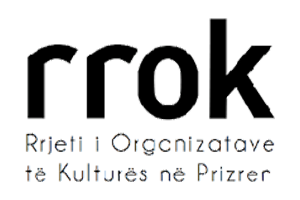ENERGY EFFICIENT SCHOOLS CAN INSPIRE STUDENTS' ECO-ACTIONS

Schools, as well as other institutions, together with households, contribute to environmental pollution through energy consumption, especially during the winter season. Therefore, good practices for energy efficiency can influence schools to reduce their carbon footprint and curb negative effects on the environment, but also inspire students for eco-activism.
Since Kosovo relies mainly on coal for energy production, which is a source of greenhouse gases with consequences for the health of citizens and for the environment, the authorities have started the application of some measures for energy efficiency in the public sector and in private residential buildings which aim to reduce these negative effects.
Research realized by Ec Ma Ndryshe has found that actually most of the schools in the big municipalities of Kosovo use pellets, wood and oil for heating, even with combined systems.
The municipality of Prishtina uses pellets, wood, oil in 65 different school buildings, while a part of them is connected to the city's heating system. Pellet as fuel for heating is used in 31 educational buildings, wood in 11 schools, oil in 19 school buildings and 14 others with the city heating system.
Most of the educational buildings of the Municipality of Prizren are heated with pellets, where 84 of them use it as fuel and within a school year they are supplied with nearly 1,430 tons. Wood for heating is used by 25 school buildings and consumes about 2,253m³. Only one school is heated with oil, which consumes 12,000 liters of oil per year, and 3 schools use electricity for heating, which consumes 18,600kW per year.
The municipality of Ferizaj with 39 primary and lower secondary schools (with 13 separate physical classrooms) and 7 upper secondary schools mainly uses wood as fuel for heating, which consumes a total of 4,762 m³ of wood, while only 2 high schools are heated with oil, which spend 8,500 liters of diesel per season.
The municipality of Gjilan with 28 primary and lower secondary schools and 10 upper secondary schools, has 10 schools that use pellets for heating, where for the year 2023-2024 they have been supplied with 298 tons of pellets.
A total of 34 schools have a wood heating system, which consumes 4,719m³. 6 school buildings are heated with oil and for one school year they spend 49,000 liters of oil.
The municipality of Gjakova has a total of 48 school buildings, and most of them are heated with pellets, where they spend 235 tons for one season. Then there are 15 schools that use oil for heating, which consume 94,506 liters of it. The rest of the schools that use wood as fuel consume 868m³ of wood per year (11 schools). It is also characteristic to mention that there are several schools in this municipality that are connected to the city's heating system.
In the Municipality of Peja, regarding the heating system in school buildings, most of them are heated with wood. Out of a total of 38 schools in this municipality, 28 of them are heated with wood. Oil as a fuel is used for heating in 4 schools, while pellets are used only in one school. It is important to mention that there are also some schools that have a heating system combined with wood and pellets.
The municipality of Mitrovica, which has a total of 28 primary schools and 4 high secondary schools, mainly uses wood as fuel for heating (22 schools), which consume about 2,300m³ depending on the winter season. About 8 schools of this municipality are heated with pellets, which use approximately 200 tons of pellets. While 4 schools use oil for heating, spending about 35,000 liters of oil, and only one school is heated with a heat pump.
In these municipalities, in the last two years, investments have started in some schools that are related to the improvement of energy efficiency. A number of schools have even benefited from the Kosovo Fund for Energy Efficiency. Among the major projects in this direction are the loan agreements from the EBRD for the improvement of energy efficiency in the public buildings of the Municipality of Pristina and Prizren. Improving energy efficiency in buildings is also an objective of the Kosovo Energy Strategy 2022-2031.
The efforts of the local authorities in this direction have been evaluated by the European Union, where in the last Report for Kosovo it is emphasized that there has been good progress in the implementation of the fund for energy efficiency, in which case the procedures for subsidizing energy efficiency measures have been created. energy in residential buildings. But the EU has emphasized that Kosovo should provide more finances and strengthen the institutional capacities in this field, while actions are also needed to align the legislation with that of the EU.
According to various researchers, school buildings have a great social responsibility, and as a result, energy efficiency in these types of buildings has a special weight. When it comes to education, providing a good indoor climate has been shown to have a positive effect on learning. In schools and other places of learning, it is important that heating solutions are quiet and energy efficient, with fast and reliable thermostatic controls.
At the same time energy efficient schools reduce carbon footprints, promote sustainability and help combat climate change. According to the recommendations of international researchers, in these schools even students can actively engage in energy consumption management, cultivating a sense of responsibility and environmental guardianship. In addition, all sustainable practices in schools help create ecologically conscious habits, as energy-efficient schools also create community partnerships and inspire others to adopt green initiatives.




